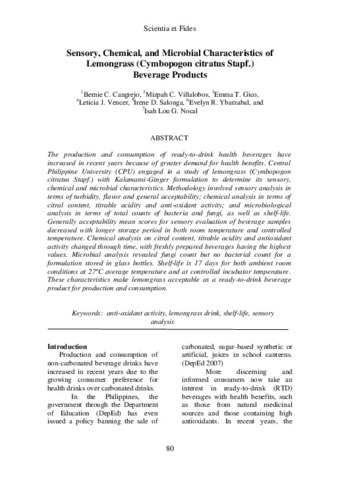Sensory, chemical, and microbial characteristics of lemongrass (Cymbopogon citratus Stapf.) beverage products
Abstract
The production and consumption of ready-to-drink health beverages have increased in recent years because of greater demand for health benefits. Central Philippine University (CPU) engaged in a study of lemongrass (Cymbopogon citratus Stapf.) with Kalamansi-Ginger formulation to determine its sensory, chemical and microbial characteristics. Methodology involved sensory analysis in terms of turbidity, flavor and general acceptability; chemical analysis in terms of citral content, titrable acidity and anti-oxidant activity; and microbiological analysis in terms of total counts of bacteria and fungi, as well as shelf-life. Generally acceptability mean scores for sensory evaluation of beverage samples decreased with longer storage period in both room temperature and controlled temperature. Chemical analysis on citral content, titrable acidity and antioxidant activity changed through time, with freshly prepared beverages having the highest values. Microbial analysis revealed fungi count but no bacterial count for a formulation stored in glass bottles. Shelf-life is 17 days for both ambient room conditions at 27ºC average temperature and at controlled incubator temperature. These characteristics make lemongrass acceptable as a ready-to-drink beverage product for production and consumption.



